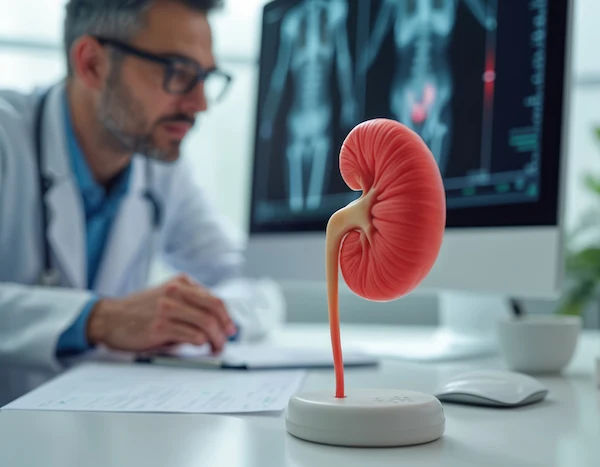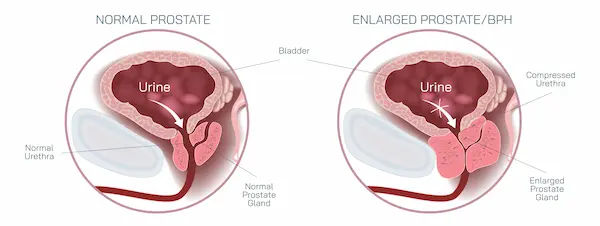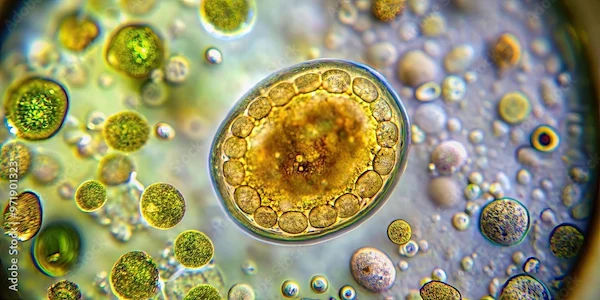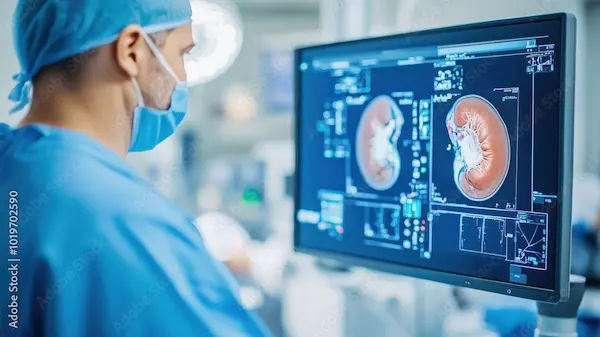- Male
- 26 Years
- 22/01/2025
I've noticed that the skin on the upper part of my penis doesn't open up properly, and the last time I had sex, it started bleeding and was really painful. I'm not sure what to do about it. Could you give me some advice?
Answered by 1 Apollo Doctors
It sounds like you may have experienced a condition called phimosis, where the foreskin is too tight to retract fully. It's important to avoid any further trauma to the area. I recommend seeing a healthcare provider, preferably a urologist, for a proper examination and treatment options, which may include topical treatments or, in some cases, a minor surgical procedure.
Dr. Dr Khaleel Suggests...
Consult a Urologist
Answered 04/07/2025
0
0

More Urology Health Queries
View allI've been having some issues with my foreskin and wanted to know what treatment options are available. Can you suggest a good doctor who specializes in this? Also, could you give me an idea of how much circumcision surgery usually costs?
do all requred lab report first to understand risk and progress.
Answered by 1 Apollo Doctors
I'm a bit worried about my foreskin. It only pulls back halfway when my penis is erect, and there's also a tilt towards the left. Do you think circumcision might be necessary? Could you give me some advice on this?
Visit Physician for evaluation and appropriate management
Answered by 1 Apollo Doctors
I'm a bit concerned after a recent ultrasound showed multiple echogenic foci in my right kidney and a small single echogenic foci in my left kidney, ranging from about 3mm to 6mm in size. Does this mean I might have kidney stones, or could it be something else?
Changes in Menstrual Cycle After D&C _Normal Variations_ 1. _Temporary changes_: Menstrual cycles can be affected after a D&C, leading to changes in flow, duration, or frequency. 2. _Hormonal adjustments_: The procedure can cause hormonal fluctuations, which may influence menstrual cycles. _Possible Causes of Reduced Flow_ 1. _Uterine scarring_: D&C can cause scarring in the uterine lining, leading to reduced menstrual flow. 2. _Hormonal imbalance_: Changes in hormone levels after D&C can affect menstrual flow. 3. _Asherman's syndrome_: A rare condition where scar tissue forms in the uterus, leading to reduced or absent menstrual flow. _When to Consult a Doctor_ 1. _Persistent changes_: If your menstrual cycle doesn't return to normal after 2-3 cycles. 2. _Severe pain or heavy bleeding_: If you experience severe pain or heavy bleeding during your period. 3. _Difficulty conceiving_: If you're trying to conceive and experiencing difficulties. _Recommendations_ 1. _Wait for 2-3 cycles_: Allow your body to adjust and your menstrual cycle to regulate. 2. _Consult your gynecologist_: Discuss your concerns with your gynecologist to rule out any underlying conditions. 3. _Get a check-up_: Schedule a check-up to ensure your reproductive health is normal.
Answered by 1 Apollo Doctors
Disclaimer: Answers on Apollo 247 are not intended to replace your doctor advice. Always seek help of a professional doctor in case of an medical emergency or ailment.




.webp)
